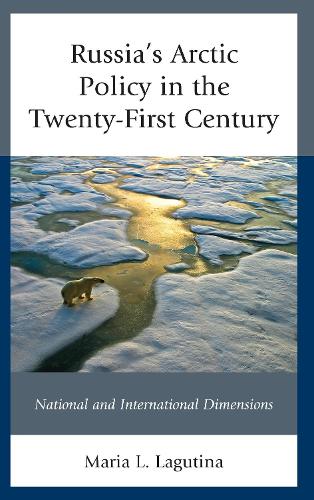
Russia's Arctic Policy in the Twenty-First Century: National and International Dimensions
(Paperback)
Available Formats
Publishing Details
Russia's Arctic Policy in the Twenty-First Century: National and International Dimensions
By (Author) Maria L. Lagutina
Bloomsbury Publishing PLC
Lexington Books
2nd July 2021
United States
Classifications
Professional and Scholarly
Non Fiction
338.9471
Physical Properties
Paperback
210
Width 153mm, Height 220mm, Spine 15mm
313g
Description
This book is devoted to the analysis of all aspects of the current Arctic policy of Russia, the main strategic interests of Russia and the basics of the current Russian Policy in the region taking into account new global trends. This monograph ambitions to compile in one comprehensive study domestic and international aspects of modern Russian Arctic policy, based mainly on Russian sources that allowed the author to reveal the specifics of Russian approach to modern Arctic issues. It raises a set of important research questions: What are the main interests of Russia in the modern Arctic What areas are the priorities in the Russian Arctic policy Who governs the Russian Arctic How are decisions on the Arctic made in Russia What kind of problems is faced the Russian Arctic in global epoch How do bilateral and multilateral relations between Russia and other Arctic states impact regional developments in the Arctic How is Russia dealing with non-Arctic states and non-state Arctic actors How are Russia's domestic and foreign policy in the Arctic interrelated How is Russias Arctic policy likely to evolve in the future, in a changing global context The book argues that nowadays the Arctic vector is one of the main priorities for Russias domestic and foreign policies and, undoubtedly, Russias future is connected with development of the Arctic a region occupying a large part of the countrys territory. On the one hand, the main purpose of the current Arctic policy of Russia is the re-development and modernization of the Arctic zone of the Russian Federation (AZRF) after the period of following the breakup of the USSR that was detrimental to the Russian Arctic policies. Moreover, today the re-development of the Arctic is the most important prerequisite of the restoration of Russias great power status. On the other hand, it is obvious that current Russias Arctic strategy should be duly adapted to the new global realities not only the ones formed in the wake of the breakup of the USSR and the end of the Cold War, but also to the latest developments as globalization.
Reviews
This book offers a wide-ranging account of the emerging issues in Russias Arctic domestic and international strategies, and the emerging geopolitical situation in the region. In contrast with the simplistic vision of Moscows policies in the High North as expansionist or militaristic, the author develops a more balanced and broader one. Such a vision includes not only the hard security but also socioeconomic problematique, such as sustainable development strategy in the Russian North, natural resources exploration, transportation systems development, environmental policies, indigenous peoples, etc. The multidisciplinary approach provides a profound analysis of recent key themes in Russias Arctic policies as well as an excellent overview of Moscows relations with major Arctic actors. The book is very well written in an accessible manner for readers with various backgrounds. It can be recommended not only for experts in and students of Moscows policies in the High North but also for a broader readership on the Russian international strategies and Arctic geopolitics and geoeconomics. -- Alexander Sergunin, St. Petersburg State University
Author Bio
Maria Lagutina is associate professor and Vice-head of World Politics Department at St.Petersburg State University.
